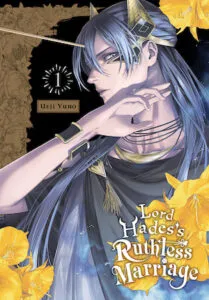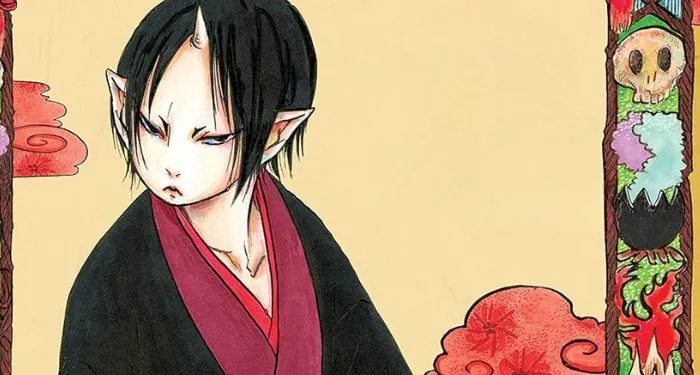
The Best Manga Inspired by Mythology
As a longtime lover of manga and its adapted form anime, I’ve long appreciated the vast sources manga artists have gotten their inspiration from. These inspirations have included everything from modern, everyday Japanese life to historical events to, yes, mythology.
Late nights in the early 2000s, I got a taste of Japanese mythology through Inuyasha and later through shows and movies like Spirited Away and Noragami. Becoming more acquainted with the various deities and yōkai, or demons, across stories has provided an interesting context for me to not only better understand Japanese culture but also connect with the stories on another level.
But Japanese mythology isn’t the only one that’s been explored in manga. Below, mangaka (or manga artists) have centered their characters in various cultures’ worlds. There’s romance and Chinese mythology, trapped desperation in an ancient Greek world, the many sections of Hell in a Buddhist reality, and even an ancient Egyptian priest who traverses time and space to hunt mischievous creatures.
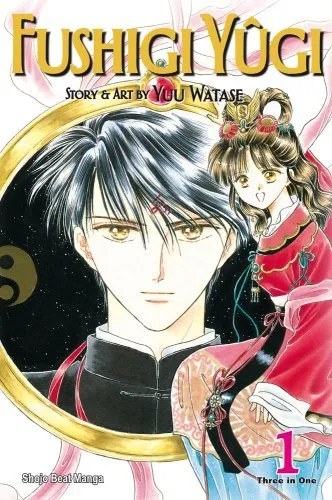
Fushigi Yûgi by Yuu Watase
Years ago, I was really into the prequel to this series, Fushigi Yûgi: Genbu Kaiden. I remember hunting around for a full set and feeling pretty accomplished when I finally found one. Set 200 years after the events of Genbu Kaiden, Fushigi Yûgi follows 15-year-old Miaka Yuki and her bestie after they open an ancient Chinese book and get transported to a new world. This new world runs parallel to ancient China, and Miaka finds herself there more and more to escape the mundanity of teenage life. But she also finds it’s more dangerous — and romantic — than she expected.
The universe she travels to is the Universe of the Four Gods, which is based on Chinese mythology.
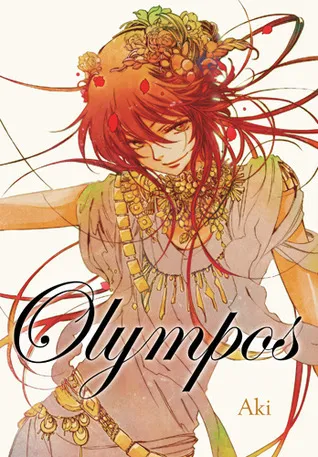
Olympos by Aki
Our first Greek mythology-inspired manga on the list, Olympos, is about Heinz, who’s about to have an odd response to his prayers. Suddenly, Apollo appears and takes him to a godly plane with limitless flowers and stars. But there in this new place is also the Trojan prince Ganymede, who has been there since he was first taken from his family by the gods for their entertainment. Ganymede is said to be trapped there by his own mind, but Heinz will eventually wonder if it’s really the prince keeping himself there or something else.
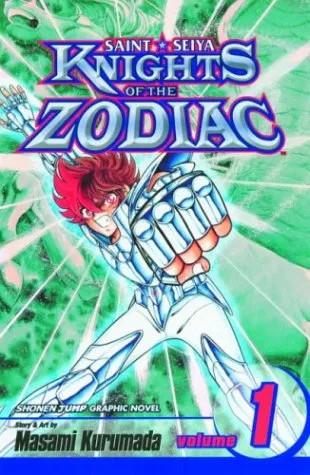
Saint Seiya by Masami Kurumada
Here’s another one centered around Greek mythology. Athena, daughter of Zeus, is the goddess of wisdom and war. Whenever she goes to war — to fight defensively — she’s surrounded by a group of young protectors called the Knights of Athena. Years in the future, in modern Greece, two Japanese tourists see a meteorite shaped mysteriously like a man crash to earth. They soon learn it’s Seiya, one of Athena’s Knights, who must train hard to win a coveted protective armor.
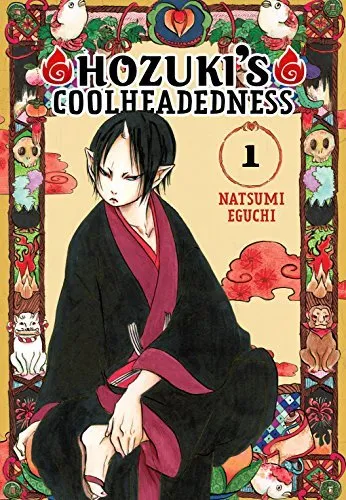
Hozuki’s Coolheadedness by Natsumi Eguchi
Based on Buddhist and Japanese mythology, Hozuki’s Coolheadedness tells how Heaven and Hell exist, with the latter being quite expansive. Hell is made up of the Eight Greater Hells and the Eight Colder Hells, which have 272 subsections. To keep everything in order, King Enma, the King of Hell, has a chief of staff — former human Hozuki. His titular coolheadedness comes into play as he navigates Hell’s daily messes.
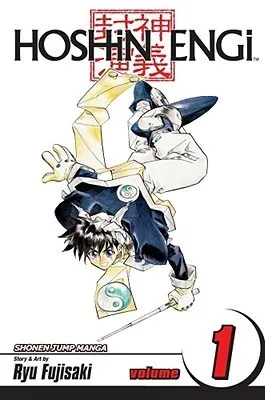
Hoshin Engi by Ryu Fujisaki
This is an interesting mix of ancient China and futuristic visions. In it, young Taikobo becomes the head of the mysterious Hoshin Project after his family is killed by the beautiful fox spirit Dakki. He sets out to get revenge on Dakki but questions his reasons for what he does along the way.
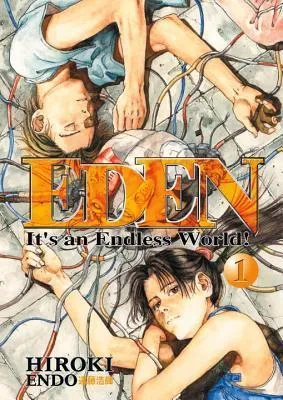
Eden: It’s an Endless World by Hiroki Endo
This post-apocalyptic manga is set in the near future when a big part of humanity is killed by a brutal new virus. With the population lessened and survivors barely hanging on, paramilitary forces stepped in to take advantage and try to rule the world. Naturally, a resistance forms, whom young Elia meets when he goes looking for his mother. This has elements of cyberpunk, philosophy, and Gnostic mythology.
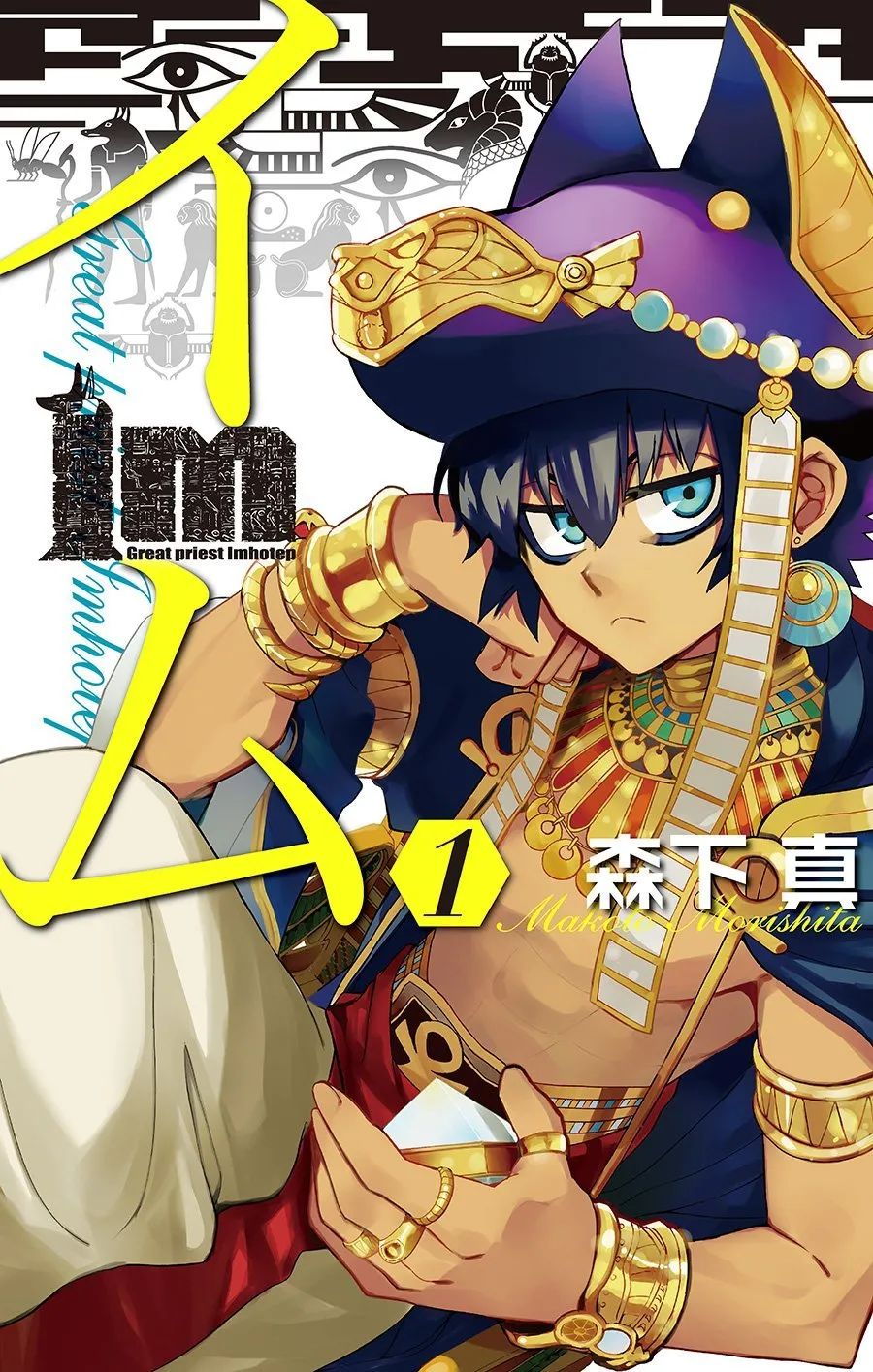
Im: Priest Imhotep by Makoto Morishita
The Great Priest Imhotep is newly resurrected and travels through time and space to hunt the devious little Magai, who impersonates the gods and causes destruction. One day, schoolgirl Hinome and the ancient priest meet, and things change forever.
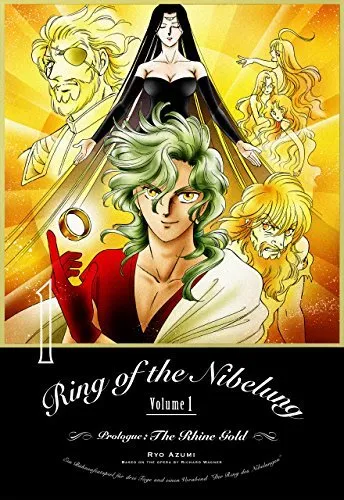
Ring of the Nibelung by Ryo Azumi
Wagner’s opera “Ring of the Nibelung” — based on Norse mythology — gets new life here in manga form. Alberich, who was hated by the fairies of Rhine, spread his nastiness and made a ring from the gold of the river. This ring is said to grant limitless power over the world, but only if the wielder forsakes love.
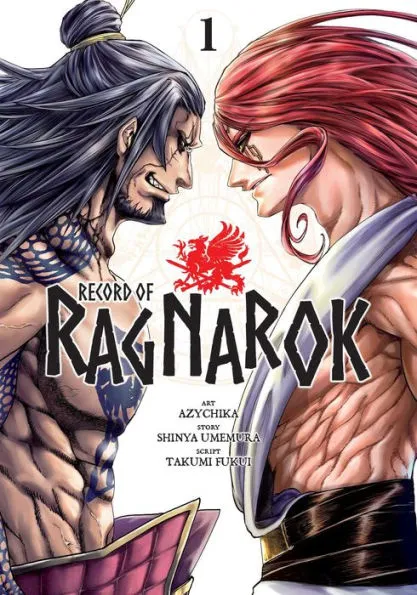
Record of Ragnarok by Shinya Umemura, Takumi Fukui, and Azychika
This is the most recent on the list and is the perfect one to end with since it encompasses various mythologies — though its name is taken from Norse mythology. It features the great battle between gods and man for man’s survival. Every millennium, the gods gather to decide if humanity should continue to exist. The answer this time is “no,” but the Valkyrie Brunhilde convinces the gods to give humans a chance to prove themselves one last time in a combat arena. Now, humanity’s greatest warriors will fight the gods for survival. This was adapted into a fairly popular anime on Netflix.
Mythology-inspired is but one sub-category of manga. There’s also mystery, horror, and even manga bout musicians. If you prefer a more broad and recent selection, make sure to look out for our new manga releases round up every month.



